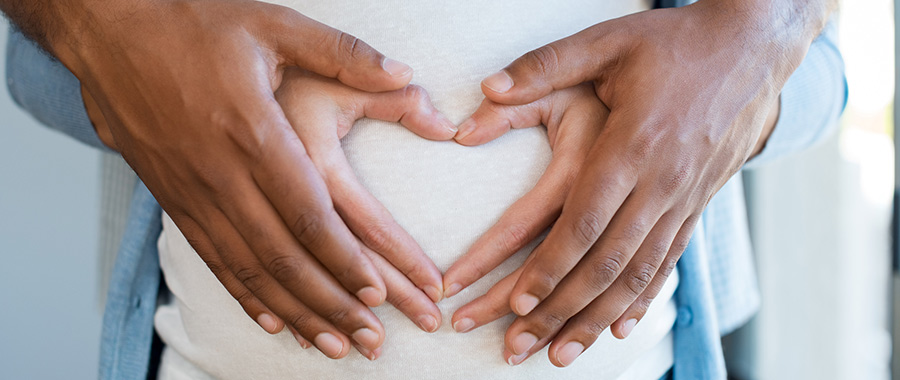In the delicate tapestry of existence, where each thread signifies a moment of profound significance, the concept of birth transcends the mere physical act of bringing a child into the world. It becomes an emblematic representation of renewal, transformation, and the cycle of life itself. Within the Bahá’í teachings, the notion of a “second birth” finds its roots in spiritual awakening and the nurturing of an enhanced consciousness. This article delves into the essentiality of prenatal exercises, which serve not only as physical preparation for childbirth but also as a metaphorical framework for spiritual rebirth.
Life’s transitions are often marked by moments of profound introspection and preparation. Prenatal exercises embody this essence, paralleling the development of the physical body with that of the spirit. Just as a seed must be tended to with care to blossom into a magnificent tree, so too must expectant mothers cultivate their well-being. Engaging in prenatal exercises facilitates this dual blossoming: the nurturing of the physical self alongside the awakening of the soul.
The Synchrony of Body and Spirit
To embark on the journey of pregnancy is to open oneself to a myriad of transformations. The Bahá’í teachings emphasize the symbiotic relationship between the body and the spirit, asserting that the cultivation of one invariably shapes the other. Prenatal exercises, therefore, are not merely physical movements; they represent a holistic approach to preparing for the act of birthing. With each stretch and breath, an expectant mother can bring awareness to her body, creating a sacred space wherein both creativity and spirit intertwine as one.
Modern scientific research corroborates ancient wisdom, highlighting the inevitability of psychological well-being intertwined with physical health. Prenatal yoga, for instance, promotes emotional equilibrium, fostering a tranquil mind that can embrace the surpassing joy of motherhood. The physical benefits, such as improved posture and enhanced circulation, serve as mere reflections of the deeper spiritual elevation achievable during this transformative period.
Embarking on the Journey of Self-Discovery
The act of engaging in prenatal exercises also embodies the journey of self-discovery. Each movement invites expectant mothers to contemplate their inner worlds, engaging in a dialogue that may have been previously unarticulated. The rhythm of breath can evoke a meditative state, akin to the spiritual reflection encouraged within the Bahá’í tradition. This path opens avenues to self-awareness, illuminating the very essence of motherhood as not merely a biological occurrence but as a profound spiritual calling.
Consider the metaphor of a sculptor chiseling a masterpiece; each practice session serves to refine the future mother into a stronger, more resilient version of herself. The attentive focus on the body—its strengths, its vulnerabilities—allows for a deeper understanding of the interconnectedness of all aspects of self. As readiness builds for the physical act of birth, so too does an openness develop for the emotional and spiritual rebirth that accompanies motherhood.
Preparing the Mind: Fostering Peace and Resilience
A pivotal element of prenatal exercises lies in the cultivation of a calm and resilient mind. The Bahá’í teachings advocate for the development of virtues, which can be fostered through intentional practices. During this time of expectation, meditation and mindfulness exercises become essential in nurturing peace—both for oneself and for the burgeoning life within. They prepare the expectant mother to navigate the complexities and challenges of birth with grace and love.
Diving deeper into the intellectual dimensions, prenatal exercises encourage the embrace of patience—a virtue extolled within the Bahá’í faith. Patience is not a passive waiting; rather, it is an active engagement with the present moment, allowing for the unfolding of life’s greatest gifts. With each passing day, the anticipation of birth becomes a culmination of both inner and outer preparation, nurturing the seeds of patience sown through contemplation and practice.
Creating Community: The Power of Shared Experience
This journey into motherhood is rarely undertaken in solitude. The Bahá’í teachings emphasize the importance of community—an interconnected web that provides support and strength. Thus, prenatal exercises can also foster a sense of camaraderie among expectant mothers. Group classes can create opportunities for shared experiences, allowing women to bond over their journeys while encouraging mutual support from one another.
In a world often marked by isolation, the communal engagement through shared physical exercises can mirror the unity sought in Bahá’í principles. The encouragement and understanding found within a community pave the way for an atmosphere conducive to both physical relaxation and emotional dynamism, thus enhancing the experience of awaiting the ‘second birth.’
Celebrating Transformation: Embracing the Hidden Blessings
Ultimately, the journey of prenatal exercises culminates in the profound realization that each movement and breath is a celebration of transformation. The act of preparing for childbirth is, in essence, an admission of faith in new possibilities. It is a surrender to the profound journey that motherhood entails, marked by all its uncertainties and joys. As articulated by Bahá’í teachings, this transformative journey allows for the emergence of new realities, signifying the spiritual rebirth inherent in the act of nurturing life.
In conclusion, prenatal exercises for a second birth illuminate the interconnectedness of body, mind, and spirit. They foster a sense of harmony, cultivate virtues, and engender community. This multifaceted practice serves as both a physical preparation for the incipient challenges of motherhood and a spiritual awakening—a metaphorical journey through which souls are refined and reborn. As expectant mothers navigate this exhilarating threshold to a new existence, they engage with profound teachings that transcend the corporeal to embrace the ethereal essence of life itself.
